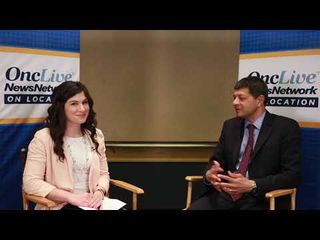
Gastrointestinal Cancer
Latest News

Treatment with adjuvant capecitabine improved overall survival by 15 months compared with observation alone for patients with macroscopically resected biliary tract cancer, according to findings from the phase III BILCAP study released in advance of the 2017 ASCO Annual Meeting.
Latest Videos

CME Content
More News

Anne Julia Klompenhouwer, MD, Department of Surgery at Erasmus Medical Center in Rotterdam, The Netherlands, discusses when it is justified to resect a larger hepatocellular adenoma for patients with hepatocellular carcinoma (HCC).

Jonathan Strosberg, MD, discusses recent developments and emerging agents in the field of neuroendocrine tumors.

Gerold Meinhardt, MD, global clinical leader at Bayer Pharmaceuticals, discusses the impact of the RESORCE trial in hepatocellular carcinoma.

Researchers have successfully performed autonomous retroflexion of a robotic capsule during colonoscopy in a subject animal, according to data presented during Digestive Disease Week 2017 at McCormick Place in Chicago.

Philip A. Philip, MD, PhD, FRCP, professor of Medicine, Wayne State University School of Medicine, clinical professor of Oncology at Barbara Ann Karmanos Cancer Institute, discusses the importance of developing new drugs for patients with pancreatic cancer.

Ghassan K. Abou-Alfa, MD, medical oncologist, Memorial Sloan Kettering Cancer Center, discusses the role of immunotherapy for patients with hepatocellular carcinoma (HCC).
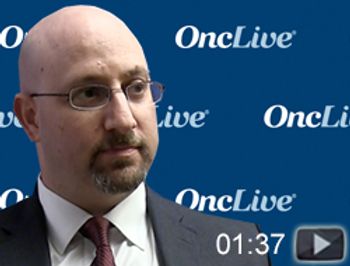
Jonathan R. Strosberg, MD, associate professor, Moffitt Cancer Center, discusses the challenges associated with treating neuroendocrine tumors (NETs).

Matthew B. Yurgelun, MD, assistant professor of Medicine, Harvard Medical School, and a researcher at the Dana-Farber Cancer Institute, discusses germline testing in colorectal cancer.

Bruno Sangro, MD, PhD, discusses the CheckMate-040 data and the future of immuno-oncology agents in HCC.

Manish A. Shah, MD, director of gastrointestinal oncology, Weill Cornell Medicine/New York-Presbyterian Hospital, discusses the difference in treatment of left- and right-sided tumors in colorectal cancer.
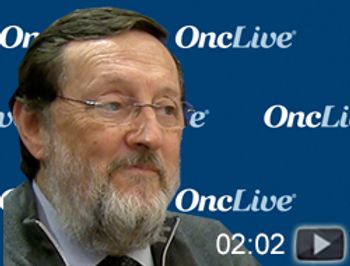
Jordi Bruix, MD, head of the Barcelona Clinic Liver Cancer (BCLC) at University of Barcelona, discusses the application of regorafenib (Stivarga) in hepatocellular carcinoma as opposed to other tumor types.

David James Pinato, MD, MRCP, PhD, faculty of Medicine, Department of Surgery and Cancer, NIHR Academic Clinical Lecturer, Imperial College London, discusses a study of sorafenib (Nexavar) in pretreated patients with hepatocellular carcinoma (HCC).

Johanna C. Bendell, MD, director of GI Oncology Research at Sarah Cannon Research Institute, discusses the FDA approval of regorafenib (Stivarga) for the treatment of patients with hepatocellular carcinoma (HCC).

The FDA has approved regorafenib (Stivarga) as a second-line treatment for patients with hepatocellular carcinoma (HCC) who have previously received sorafenib (Nexavar).

Andrew Kennedy, MD, physician-in-chief and radiation oncologist at Sarah Cannon Research Institute, discusses the next steps following the SIRFLOX clinical trial for patients with liver-metastatic colorectal cancer (CRC).

Amit Singal, MD, discusses the recent successes in the hepatocellular carcinoma treatment landscape and the challenges that still remain.

Sanjaya K. Satapathy, MD, associate professor, Transplant Hepatology Division of Surgery, Methodist University Hospital Transplant Institute, University of Tennessee Health Sciences Center, discusses preventing recurrence in orthotopic liver transplant recipients with hepatocellular carcinoma.

Bruno Sangro, MD, PhD, head of Hepatology Unit, Internal Medicine Department, Clinica Universidad de Navarra, discusses the safety profile of nivolumab (Opdivo) in advanced hepatocellular carcinoma (HCC).

Jordi Bruix, MD, discusses the success of regorafenib in hepatocellular carcinoma and its impact on the field going forward.

The first-in-class prodrug, mipsagargin (G-202), showed promising antitumor activity and enabled patients with advanced sorafenib-refractory hepatocellular carcinoma to achieve disease stabilization.

Liver-targeting treatment with selective internal radiation therapy more effectively controlled liver tumor progression and was better tolerated in patients with hepatocellular carcinoma, but the therapy did not improve rates of overall or progression-free survival over sorafenib.
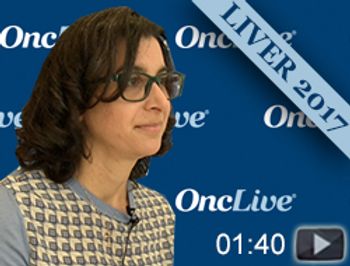
Nadine Abi-Jaoudeh, MD, associate professor, Department of Radiological Sciences, director, Research of Interventional Radiology in the Department of Radiological Sciences, University of California Irvine School of Medicine, discusses the combination of tirapazamine (SR-4233) and transarterial embolization in hepatocellular carcinoma (HCC).
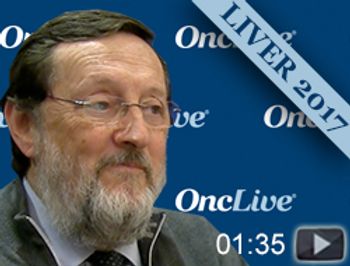
Jordi Bruix, MD, head of the Barcelona Clinic Liver Cancer (BCLC) at University of Barcelona, discusses the recent success of regorafenib (Stivarga) in hepatocellular carcinoma (HCC) and its impact on the field.
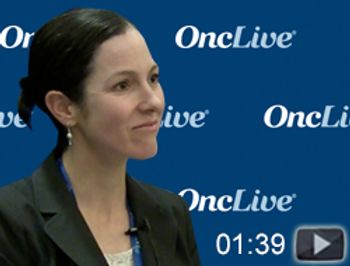
R. Kate Kelley, MD, associate professor, University of California, San Francisco, discusses biomarkers for immunotherapy in hepatocellular carcinoma.
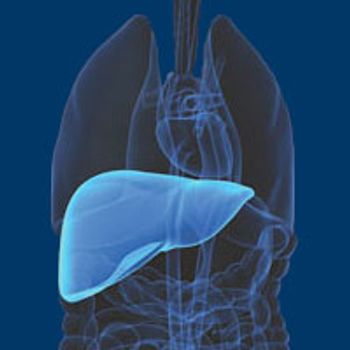
Log10 alpha fetoprotein level in the blood directly corresponded to the months of posttreatment survival in patients with hepatocellular carcinoma, independent of the type of treatment, regional differences, and disease etiology.














